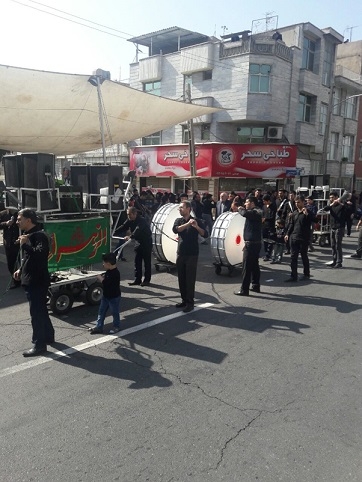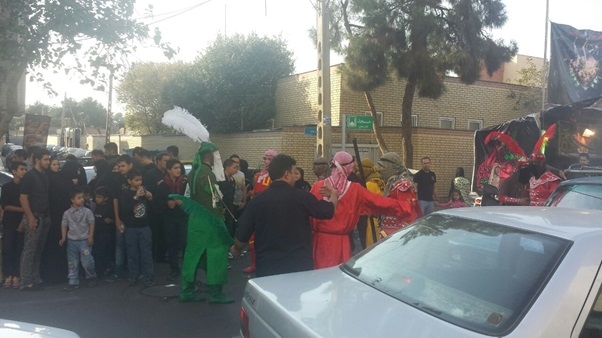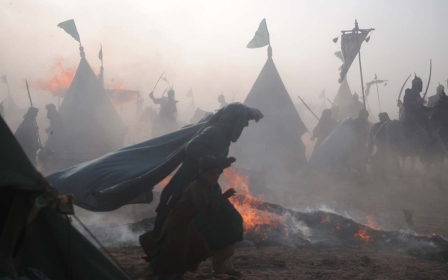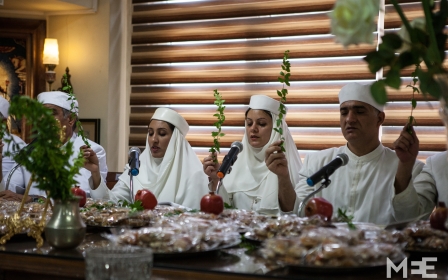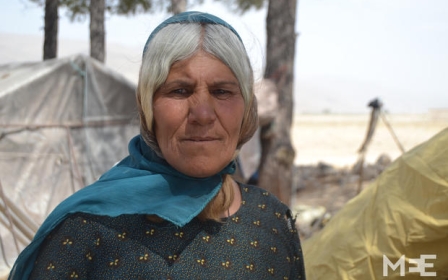Muharram brings out the best in Iranians
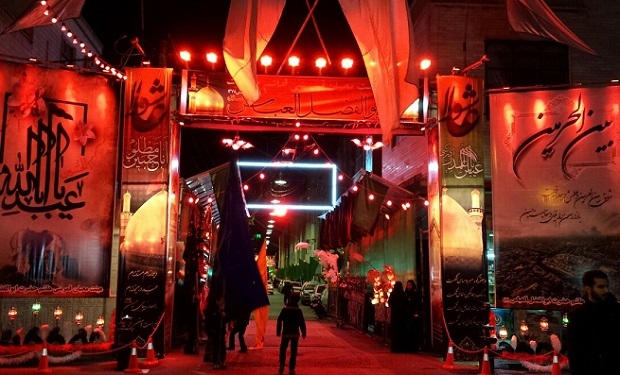
Muharram (a month in the Islamic calendar) is a month like no other in Iran. It is like stepping into a different country with a fabulous and rare atmosphere, rooted in religious tradition and ritual. It is a significant month in Islamic history, especially for Shia Muslims, marking the time when Hussein ibn Ali, the grandson of the Prophet Muhammad, was martyred in the gruesome Battle of Karbala on 10 Muharram, in the year 61 AH of the Islamic calendar.
It was in 680 CE, and under pressure from Yazid, the caliph of the Umayyads - then rivals of the Prophet and his followers – Hussein was charged to recognise the legitimacy of their government, which he refused to do. He was then challenged to face the Umayyads in battle. Travelling to the place of battle, Hussein was arrested by an army of 4,000 men near the banks of the Euphrates river. He was held there and denied water. Still refusing to subject himself to Yazid, Hussein and his six-month-old child were slain in Karbala. Hussein’s head was delivered as a battle prize to Yazid.
Every year, when the month of Muharram arrives, Shia Muslims retreat to an atmosphere of self-reflection and contemplation. Throughout the month, you will see people walking in the streets clad in black, an outward gesture of paying homage to Hussein for his faith and integrity that ultimately cost him his life.
To preserve the remembrance of Hussein and his sacrifice, many streets of Tehran and other cities of Iran become home to special gatherings and religious processions. Many people hold religious meetings in their homes, which are open to everyone. Guests face a warm welcome from the host, who provides hot tea and delicious food, called nazri (charity food), to his guests.
Religious singers perform, preachers recite the details of the Battle of Karbala and the ordeal Hussein and his family endured. While listening to the particulars of the battle that happened so long ago, people weep and mourn as if Hussein’s martyrdom just occurred.
The first 10 days of Muharram hold the greatest worth, because Hussein’s journey and martyrdom occurred during that time. For 10 days there are no weddings, parties, no listening to happy or upbeat music. Iranian television leaves comedies and dramas by the wayside and focuses on vivid depictions of the historic Battle of Karbala. Weddings continue to be put on hold for a 40-day period after the date of Hussein's martyrdom.
In streets and alleys, temporary stations and tents are erected, presenting people with free tea or soup.
Ali-Reza Ahmadi, an 18-year-old inside a tent in Dibaji Street, located in north of Tehran, told Middle East Eye: “I’m here from morning till nine in the evening, but I don’t feel tired, because I’m working for Imam Hussein, the selected servant of God.”
The impact that this revered month has on Iranians is clear. People become kinder to each other and strive to correct their social manners. Youth take an active part in Muharram’s rituals and people who are not inclined to practice their religion during the rest of the year are drawn to the rites. Even the crime rate makes a nosedive during Muharram, signalling the influence of Hussein’s story on people’s everyday lives.
Dr Hussein Baher, a sociologist and a professor at Shahid Beheshti University, told MEE: “Most of the people involved in Muharram’s rituals give up their bad habits temporarily. The love of Hussein in the hearts of Iranians lightens peoples’ tendency to violate the law or commit crimes.”
Mohsen Gharavain, a cleric based in holy city of Qom, told MEE: “Imam Hussein is a very sacred and popular figure among Iranians, and since the message of the Battle of Karbala has such a profound impact, when Muharram arrives, everyone seeks to behave in a way that reflects the virtuous life of Hussein.”
Business shutdown
Muharram also has a strong impact on commerce. It is not only due to the will of the people, who want to retreat from consumerism, but retailers themselves play a key role in the decline.
Mahmoud Haji Loo, a tea house owner in central part of Tehran, told MEE: “Every year, I close my tea house in the first 10 days of Muharram, because I want to take part in the rituals and chest-beating ceremonies.”
Famous artists and football players also join people in observing the martyrdom of Hussein. Ali Daei, the legendary football player who is the world's top all-time goal-scorer in men's international matches, is among those who donate food in this month for the sake of Karbala’s martyrs. He told local TV: “As long as I shall live, I will provide services in Imam Hussein’s name.”
Hussein is so beloved among Iranians that even Zoroastrians and Christians take part in the Muharram rituals, believing he is admirable for his efforts in fighting the oppression and helping the oppressed.
Frank Rezaian, an Iranian Christian, told MEE: “It’s the special characteristics of Hussein that attracted me. One night before the Karbala battle, he told his companions that they will all die tomorrow; he then turned off the lights, and asked those wanting to live longer to leave him.”
“Iranian Christians regard Imam Hussein as the follower of Jesus’s path, set out by Prophet Ibrahim. These holy figures all sacrificed themselves to provide a better life for mankind,” Baher told MEE.
In some areas of Tehran, people perform Tazie, a condolence theatre inspired by historical and religious events, symbolising epic spirit and resistance. In Tazie, which attracts many people, six or seven actors depict the Battle of Karabla and provide the audience with a better understanding of Hussein’s situation.
Qamezani, or self-mutilation with strikes to the head or back, is another ritual during Muharram and used to be practiced by hardliners up until several years ago. But the Grand Ayatollahs issued a fatwa prohibiting the practice, and said that self-inflicting wounds were against Islamic law and portrayed a violent picture of Islam. Nevertheless, some still carry out the practice – which is now punishable by law - in secret.
This year, President Hassan Rouhani, a cleric who is well versed in Islamic history, allocated a few minutes of his cabinet meeting to reciting the epic story of Hussein. When he was giving a speech on Hussein, cabinet members started mourning, and Rouhani himself appeared close to tears.
In sum, Muharram is a month during which it is worth paying Iran a visit, to witness the influence of Hussein and his impact on the people, and to observe the inspiring and impressing rituals all over the country.
Middle East Eye propose une couverture et une analyse indépendantes et incomparables du Moyen-Orient, de l’Afrique du Nord et d’autres régions du monde. Pour en savoir plus sur la reprise de ce contenu et les frais qui s’appliquent, veuillez remplir ce formulaire [en anglais]. Pour en savoir plus sur MEE, cliquez ici [en anglais].


